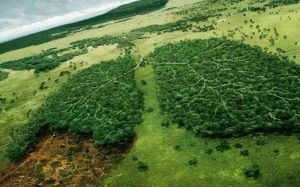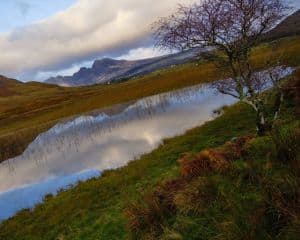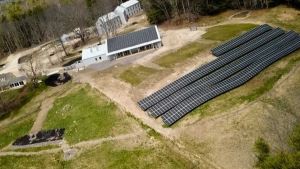Ecology can be defined as the study of the environment, Which helps us understand the concept of how organisms live with each other in physical environments.

A person who studies ecology is known as an ecologist. They study multiple facets of life, from the moss that grows on rocks to the population of wolves in Yellowstone Park.
Human activity can have a huge impact on the ecosystems. Pollution emitting from the factories and fossil fuel can affect the food supply of living organisms and the food web.
There are many different ways to study ecology. Some types of ecology are landscape ecology, population ecology and behavioral ecology.
One of the best places to find articles about ecology is national geographic.
Table of Contents
Articles about ecology issues
One article about ecology issues that clearly describes the problem is this article.

There are three major ecological issues that this article address:
- Climate change
- Water pollution
- Loss of biodiversity
Climate change is the change in global temperature due to increase in pollution, resulting in the melting of icebergs and increase in water levels around the globe.
Water pollution is a type of pollution occurring due to disposal of garbage and chemicals in the oceans, rivers and seas by humans. It contaminates the water affecting the marine life.
Biodiversity helps maintain the balance in the ecosystem. It provides resources which are very important for our survival. Habitat destruction, climate change, pollution leads to extinction of certain species affecting the entire circle of biodiversity.
Recent ecology articles have largely been focused on climate change.
Articles on ecology and environment
Ecology is the study of the link between organisms and their environment. Ecologists try to understand process of life, the adaptation techniques and the biodiversity.

Understanding these processes help us in analyzing the positive and negative effects.
Environment is the study of the surroundings we live in and the internal and external factors which affect our surroundings e:g pollution & deforestation etc. The surroundings determine the climate and weather that are very important and directly connected to the survival of every biological form.
A great article on ecology and environment is one linked here.
Ecology articles for students
Ecology is the study of the ways through which biological organisms interact with their environment.
FUN FACTS FOR STUDENTS:
- The word ecology was coined in 1869 by a German zoologist known as Ernst Haeckel.
- The word ecology is derived from Greek word ‘oikos’ which means “Household”.
- The word oikos refers to the household of the natural world.
- Before the 20th century ecology was not considered an important part of science,although it gained more popularity due to research and examining the natural surroundings and their impact on the biological organisms.
Ecology science article
Ecology is a branch of science that includes understanding of human science, population, community, ecosystem, and biosphere.

It is the study of organisms, the surroundings and how the organisms interact or communicate with each other in their environments.
The main goal of an ecologist is to improve his/her understanding of life processes, adaptations, habitats and interactivity and biodiversity of biological organisms.
This is an excellent Ecology science article.
Biotic and Abiotic Factors
Understanding biotic and abiotic factors is the primary aim of ecology. It also answers the questions like how and why the distribution of biotic and abiotic factors of livings things in an environment is important..
Biotic components
Biotic components are considered as living factors of an ecosystem. There are various examples of biotic components, such as animals, plants, fungi etc. Everything that has living factors is a biotic component of an ecosystem.
Abiotic components
Abiotic components are the opposite of the biotic components. Since the abiotic components are non-living factors of an ecosystem. These components could be obtained by from spheres of our planet which are categorized as atmosphere, lithosphere and hydrosphere.
There are various examples of abiotic components such as sunlight, soil, air, minerals etc.
Ecology research
Ecology research is the methodological study of the ecology. Ecological research is important because the natural world is interconnected in complex ways which is hard to understand.

The main methods used by ecologists for research are as follows:
Observation
In this method of ecology research an ecologist observes the natural world, such as plants and animals. They observe for a certain amount of time to see what changes have occurred in the chosen time period.
For example, keeping a mice in a glass container, and observing it’s behavior or take blood samples to determine it’s health.
These observation helps the ecologists to understand their nature and how they interact with the other bio-organisms and the environment around them.
The ecologists observe the natural world and habitat in two ways known as direct surveys and indirect surveys
Direct surveys are those surveys which are done by directly observing the animals through eyes or binoculars.
Indirect surveys are those surveys which are conducted by looking for signs of animals e:g: looking for feces of animals etc. By collecting this kind of data continuously, the scientists can figure out how the populations are changing or is being affected by other factors.
Modeling
In modeling, the ecologists create a model from the collected data with the help of computers. For example, the ecologists can attach GPS tags to animals and that collected data can be used to create a model which can track the behavior and movements of the observed animal.
Experimentation
In experimentation, the ecologists change certain aspects of an environment in real time to study the affect of the applied change. It also helps understand what changes can have good or bad impact on a certain environment.
Global change biology impact factor
Global change biology a journal which promotes understanding of the interaction between all aspects of the present environmental change that affects a huge part of the earth and the biological systems existing in it.
The global change biology impact factor as of 2021-2022 is 10.863 according to the data sources.
These studies are based upon data collected through theoretical analysis, modeling, experiments, observation and historical data available to scientists in form past researches.
Nature ecology
Nature ecology and evolution is an online-only peer reviewed scientific journal published monthly by Nature Publishing Group which covers all aspects of research on ecology and evolutionary biology.
There are many interesting journals available on ecology and evolutionary biology. It was established in 2017.
It’s first and current editor-in-chief is Patrick Goymer.